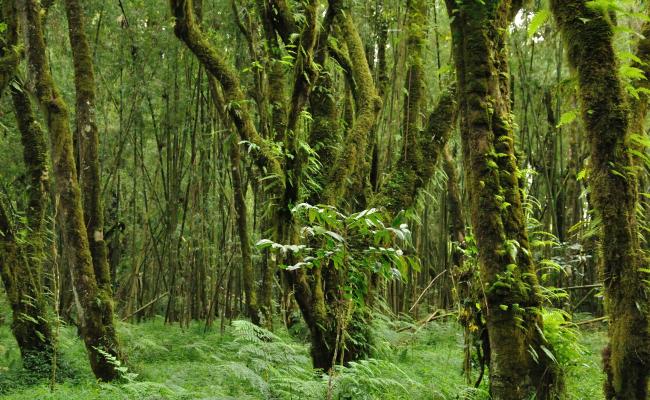Addis Ababa, 23 January 2015 (WIC) – Melca Ethiopia, a local NGO with a vision to see bio-cultural diversity conserved for a healthy eco-system and sustainable life is helping Ethiopia boosts forest bio-sphere reserves.
The organization which has been able to set aside 238,750 hectares of Sheka zone, as a forest bio-sphere, containing over 300 higher plants, 50 mammals, 200 birds and 200 amphibian species ,out of which 55 plants and 10 birds are endemic is gearing up to help even more forest areas for the benefit of the local population.
The reserve also has 38 big waterfalls, 13 caves, 38 mineral water and hot springs as well as two lakes and a number of sacred natural sites.
It plans in the next few months to have a similar bio-sphere reserve in the Majang zone to augment the nearby Sheka forest reserve.
Dr. Million Belay, Director of Melca Ethiopia which together with local authorities has devised several other bio-spheres, stated at a ceremony on December 27, held in Tep town 609 kms SW of Addis Ababa celebrating the first Sheka and Majang Cultural bio-diversity day that protecting forests is more than meets the eye.
“Bio-sphere reserves aren’t only there to protect forests, but also has other aims such as keeping tradition, as was done with Yayu, Keffa, and Sheka which are UNESCO recognized bio-sphere reserve” stated Belay adding that another aim to conserve this forest is to preserve its indigenous knowledge of the forest and traditional diversity through the generations.
Melca states that out of the 238,750 has of bio-sphere area, 55,255 is classified as a core zone devoted to long term protection of the natural forest, devoid of human interference except for bee keeping, medical plants collection and ritual ceremonies among a select few activities.
While the buffer zone which covers 76,395 has is devoted for both conservation and economic use functions except such as logging, intensive agriculture, investment and hunting are allowed.
The third zone dubbed transitional zone, covering 107,100 has is a development zone where all activities for livelihood of the local community in a sustainable manner can be undertaken.
Belay while stating that bio-sphere reserves have direct benefits such as for lumber, food, yarn and health, they also have indirect benefits too.
These include in keeping rivers running and clean, and keeping temperatures balanced which would without forest presence lead to soil erosion, polluting the river as well as causing erratic weather patterns.
“In the age of climate change, we need lots of flora and fauna species to combat its effect, which are persistent and unpredictable” stated Belay adding that his organization plans to hold the second cultural bio-diversity event in Majang Zone, which is slated to have the next UNESCO recognized bio-sphere with participants from other bio-spheres around Ethiopia to participate to learn and exchange knowledge.
Image: gaiafoundation.org




